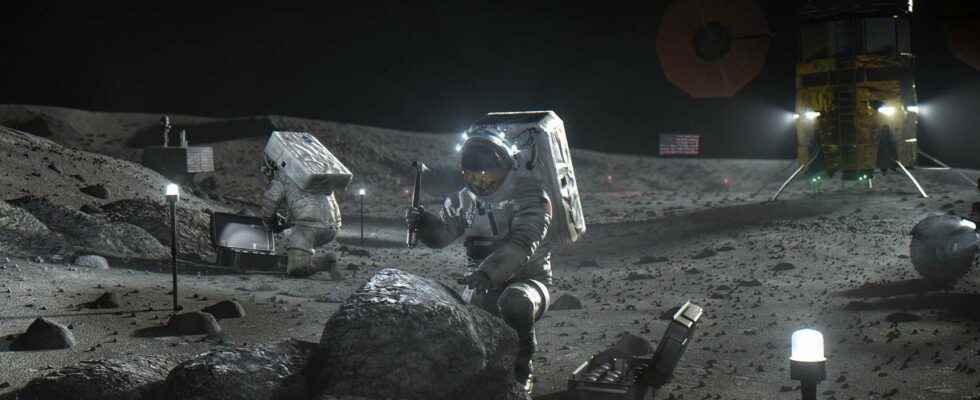On the sidelines of the celebration of the 60e anniversary of Cnes at the residence of the French Ambassador in Washington, Philippe Baptiste, Chairman and CEO of Cnes, in the presence of Bill Nelson, Administrator of NASA, signed the ” Artemis chords “. It should also be noted that these agreements are not confined solely to the Moon. They also include Mars, comets and asteroids, including on and under their surfaces. Their reach also extends to Lagrange points of the Earth-Moon system and transit between these celestial bodies and locations.
These agreements are not confined to the Moon. They also include Mars, comets and asteroids
These Artemis agreements, written by the United States, list and set out a series of principles and standards that govern civil space exploration activities, whether they are carried out within the framework of the Artemis program back to the moon or not.
Controversial agreements
However, these agreements are problematic. Indeed, according to the interpretation that one makes of it, certain jurists consider that the Artemis agreements come into contradiction with the initial spirit of several international treaties, including the space treaty of 1967 and the treaty on the Moon and the other celestial bodies of 1979.
These treaties both provide for a principle of non-appropriation: “ the Moon and other celestial bodies do not belong to anyone and therefore cannot be the subject of a right of ownership. They belong to all of humanity (res communis) “. However, the Artemis agreements provide ” the extraction and use of space resources, including any recovery from the surface or subsurface of the Moon, Mars, comets or asteroids “, believing that they can ” serve humanity by providing critical support for the safety and sustainability of operations “. More concerning, in joining the Artemis Accords, the signatories claim that “ the extraction does not in itself constitute an appropriation within the meaning of Article 2 of the Outer Space Treaty “.
Another subject of controversy and concern, these agreements provide for “ safety zones (safety zones) to be preserved from interference, which include historically significant landing sites from assignments inhabited or robotics, artifacts, space vehicles and other evidence of activity on celestial bodies. In other words, we can think that the United States and all the signatory States grant themselves property rights as soon as one of their historical or future missions will arise at any place on the Moon, Mars or a asteroid for example. The term “historically important” can make you smile when you know that over the next few decades, all the manned exploration missions that will land anywhere in the solar system will be “historically significant”. Before these missions become routine, members of the Artemis Accords will have conquered many, many safety zones.
That said, France obviously could not stand apart, especially since since the start of the war between Russia and Ukraine, the international situation has changed significantly. Strictly speaking, the conflict between these two countries did not precipitate the signing of France, which had made its decision in November 2021, during the visit of the Vice-President of the United States, Kamala Harris. But, as Cnes points out in its press release, the Artemis agreements “ offer many opportunities for industry and scientific research, both at national and European level. French companies in the sector are already actively involved in the Artemis program. France’s signature should thus make it possible to extend and deepen this mutually beneficial cooperation. “. These few lines summarize France’s interest in joining them.
It should be noted that two major space powers, China and Russia, have not signed the Artemis agreements and it is unlikely that Russia will ever sign them. These two countries have publicly opposed these agreements, preferring a cooperation treaty providing for the realization of a Russian-Chinese moon base.
Special offer: for Father’s Day, offer the best of Science!
Your father is a great science enthusiast and unusual discoveries? And if you offer him a superb scientific exploration in paper format? Benefit from -20% on the Mag Futura (special offer: €15 instead of 19 €): 220 pages to explore 4 scientific issues that will shape our future!
Mag Futura is:
- 4 major scientific questions for 2022, from the Earth to the Moon
- 220 pages, 60 experts: no fake news, just science
- Home delivery with electronic gift card
- An independent scientific media
Interested in what you just read?
